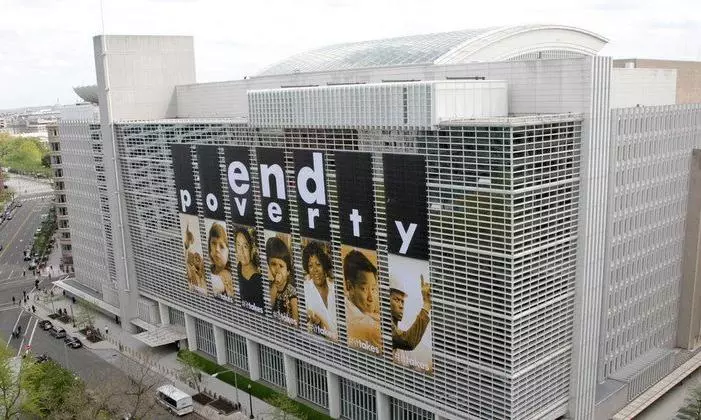
World Bank warns Pakistan as nearly 100 million people fall into poverty
text_fieldsWashington: Pakistan's poverty rate has surged to 39.4%, with nearly 100 million people now living in poverty, as poor economic conditions continue to take a toll on the nation, according to the World Bank.
Poverty in Pakistan increased from 34.2% to 39.4% within a year, adding 12.5 million more people below the poverty line of a $3.65 per day income level.
Tobias Haque, the World Bank's lead country economist for Pakistan, emphasised that Pakistan's economic model is no longer effective in reducing poverty, and living standards have lagged behind peer countries.
The World Bank urged Pakistan to implement immediate measures to address its economic challenges, including taxing key sectors like agriculture and real estate, as well as cutting unnecessary expenditures. The goal is to achieve economic stability through a significant fiscal adjustment, equivalent to over 7% of the economy.
The lender highlighted low human development, an unsustainable fiscal situation, over-regulation of the private sector, and issues in the agriculture and energy sectors as priority areas for reforms in the next government. Specific proposals include increasing the tax-to-GDP ratio by 5% and reducing expenditures by about 2.7% of GDP.
To boost government revenues, the World Bank recommended the withdrawal of tax exemptions and increasing taxes on real estate and agriculture. It also proposed mandatory use of Computerised National Identity Cards (CNICs) for transactions, especially for asset-related transactions.
The World Bank also called for a reduction in energy and commodity subsidies, the implementation of a single treasury account, and temporary austerity measures to save about 1% of GDP in the short term.
For the medium term, the World Bank suggested reducing federal development and current expenditures on provincial nature projects, cutting spending on loss-making entities, and improving the quality of development spending to save about 1.4 trillion rupees. The cumulative impact of these short- to medium-term savings is estimated at 2.7% of GDP.
The World Bank also pointed out that Pakistan heavily subsidises the agriculture sector, which results in low productivity. Savings could be achieved by winding up ministries under provincial jurisdiction and devolving certain programs to the provinces.
Pakistan's economy has been grappling with a free-fall situation in recent years, causing significant inflationary pressures on the population. The government has received financial assistance, including a $1.2 billion disbursement from the International Monetary Fund in July, as part of a $3 billion bailout program aimed at stabilising the country's economy.
The World Bank's policy recommendations come as Pakistan faces critical economic and human development challenges, necessitating major policy shifts to address the nation's current crises.























